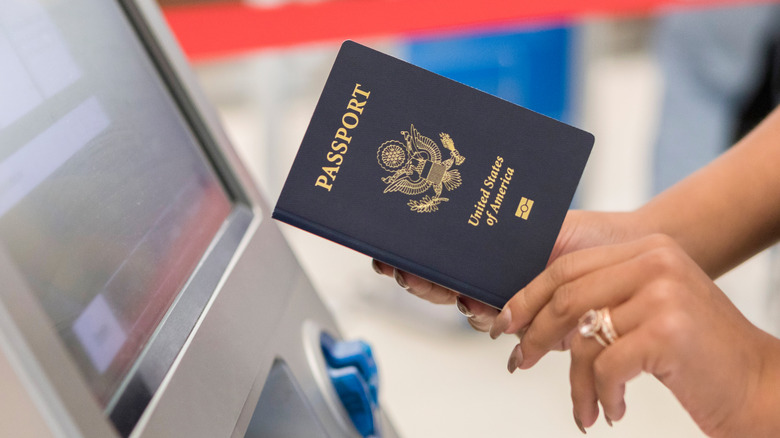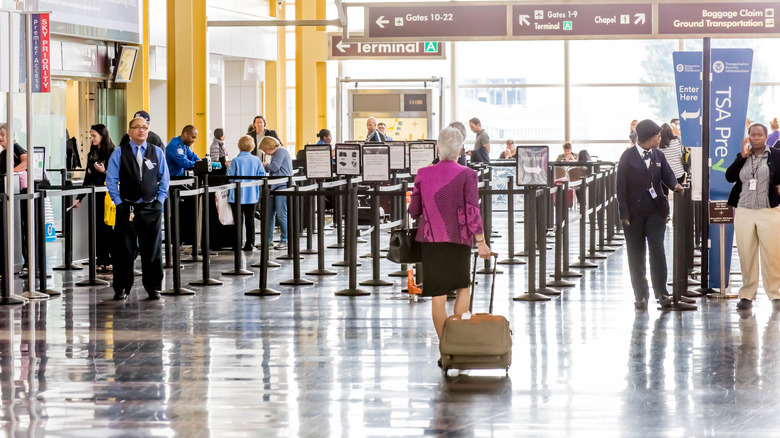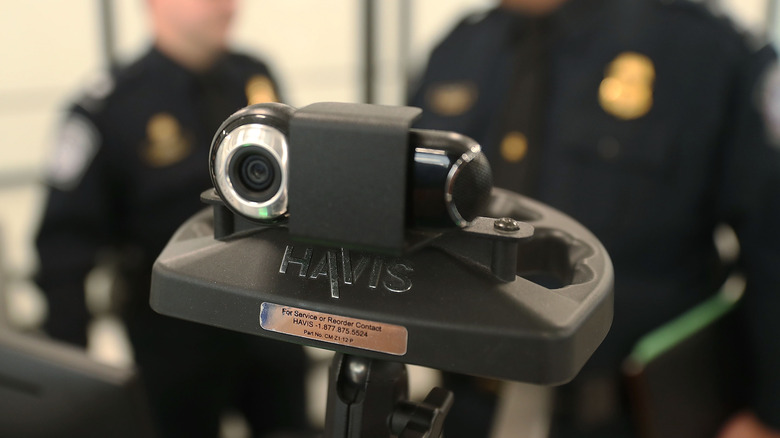You Might Zip Through TSA Faster If Your Passport Has This Small Camera Symbol On It
Starting back in 2006, you may have noticed a new camera-like icon appear on the front of your passport. That's when the United States started implementing biometric passports, also known as e-Passports. The first country to use them was Malaysia in 1998, with other countries following suit in the years that followed. These handy little booklets, which are becoming easier for people to obtain for travel, still otherwise functioned the same way as any passport you'd had before, but now they contain a microchip that security personnel at airports can read.
These microchips include information like your name and birthday, but, even more specifically, the biometric passport also has data to accurately identify you like your fingerprints and retinal scans. According to the State Department, implementing these types of passports was a safety measure, but their existence is still not a reason to get rid of your old passports, even if they aren't biometric.
"The use of biometrics is important for U.S. national security," the U.S. State Department says. "Fingerprints of a visa holder are compared with similarly collected fingerprints at all U.S. ports of entry. The use of fingerprints has many benefits. We reduce the use of stolen and counterfeit visas. We protect against entry by terrorists and others who pose a security risk." As of this writing, approximately 150 countries around the world use biometric passports.
Why do biometric passports move security faster?
Without the need for a TSA agent to scan your passport and face to ensure a match, security lines at airports can be smoother for you — and therefore everyone else. That's because you just have to scan your passport and the information is right there, confirmed by the data in your passport. These biometric passports also make border control a simpler process since the same scanning technology is used there.
Despite its security and convenience, there have still been opponents to the use of biometric passports. Namely the primary argument against them is that it impedes one's privacy. Yet, for those concerned about their information getting away from their passport, know that there are a lot of security measures in place. No matter how simple the passport may seem, there are many built-in preventions. Though you can never be too careful, which is why it's recommended to invest in a good passport wallet for safe keeping.
Some of the fraud prevention firewalls include polycarbonate overlays, microtext, and invisible personalized information. They are considered the most secure kind of passport to have because of all of the protections in place and the difficulty in copying anyone's hyper specific biometric information.
Other biometrics are being implemented in airports already
If you've flown in the last few years, you may have noticed additional biometric or face scanning technologies being used in airports. These processes are being implemented for both convenience and safety reasons, making their way across airports all over the country.
"Biometric technology has the potential to enhance security effectiveness, improve operational efficiency, and yield a more streamlined passenger experience at the TSA checkpoint," R. Carter Langston, TSA spokesperson, told Reader's Digest. "TSA recognizes that biometric solutions must be highly usable for all passengers and operators, considering the diversity of the traveling public." Even if an airport has these processes in place, passengers can still opt out for a traditional ID check instead, Langston added.
For travelers who do opt in to using the biometric scanning, the TSA assures everyone that this data is highly protected. According to the agency, the information is guarded using both Department of Homeland Security and TSA cybersecurity requirements. Many experts believe that this is just the beginning for the use of biometrics in air travel. In fact, they believe that air travel will become dependent on biometrics for streamlining security and even boarding and bag check processes.


